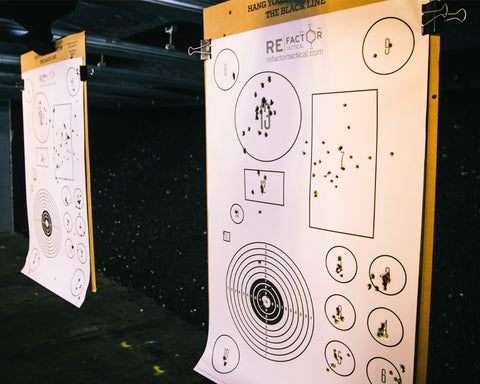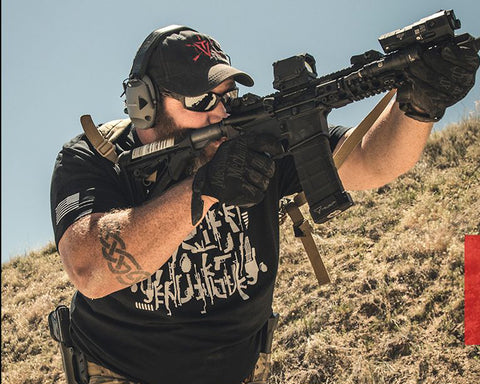What You Need To Know
- ✔ Not all lenders are created equal in knowledge or fees
- ✔ You should do your own research
- ✔ Refinancing is a great way to save, and the VA won't let you do so unless it makes financial sense
Lately, we’ve been talking about VA home loans a lot, and that’s because we know you still have a lot of questions, and it’s important. We’ll continue this conversation with details on buying land through a VA loan in our Guide to VA Land Loans. Keep reading to find out what kind and how much land you can buy if you’re utilizing a VA loan and the rumors to look out for in the process.
So what is this VA “land loan” we’re speaking of? Well, if you didn’t know, the VA will let you buy land if you plan to build a home on it, or put certain modular homes—must meet the size standard—or you plan to use it as farmland, where your primary residence will be on the property.
Land Limits
Unfortunately, as all things go with the VA, it’s never an easy thing, and with that being said, it’s left a lot of room for rumors or hearsay on what is and isn’t allowed with any type of VA Loan. For instance, a lot of people believe the VA has an acreage limit. Fortunately, this is not true.
We can’t stress this enough; the VA does not limit the amount of acreage you can purchase with your VA loan. Some websites are claiming you can’t purchase more than 20 acres or even more than 5. However, coming directly from the VA, they do not set any land limits; here’s a link to that if you’re skeptical about our claim.
Also, considering you can purchase a farm with a VA Loan, it’s hard to believe they’d put a limit of 5 acres on your purchase.
Land Improvement
VA home improvement loans, which you can read more about here, and land improvement are two different things in the eyes of the VA. Meaning, there are different policies governing it, and more can and can’ts to go along with it. So, another thing you can’t do with a VA loan as far as land goes, you can’t buy land you plan to improve later. This simply means, if you want to buy land, you need to have immediate plans to move onto that property. If you’re building your home on the property, you need immediate plans first. You can’t buy the land and “promise” the VA you’ll eventually build a house.

You need to be ready to move into your home within 60 days after the purchase of your new home. However, there are circumstances in which the VA will extend your maximum move-in date. For instance, if you’re within 12 months of retirement, you can purchase your home through the VA loan process and move in once you have officially retired, even though it’s more than 60 days. If your military duty or employment is preventing you from moving into your new home within those 60 days, you may also be eligible to extend your move-in date requirement. Simply talk with your VA loan lender for the details revolving around your specific situation.
So, with all that being said, no, you cannot buy land with the intention of buying land only. If you want to buy land just for hunting purposes, that’s a negative ghost rider. If you want to buy land for camping purposes only, again, that’s a firm no. If you want to buy land just to say you have land, yeah, that won’t fly with the VA either. But, if you want to do any of those things and live on it in a primary residence, then that will work.
Basically, it comes down to vacant land not being allowed under the regulations of the VA. The VA won’t support your loan if you cannot immediately move into a safe and sanitary dwelling upon purchase. You’ll need running water, electricity, safe conditions, and that means everything has to be up to code—oh, you’ll also need a driveway, in case you were wondering.
VA Construction Loan
However, let’s say you already have land that did not involve a VA loan—you could use the VA to place a modular, pre-fabricated, or build your home on that land. Just because you didn’t utilize the VA loan to get started does not mean you can’t use it in the future, so long as the property is safe, and by the time it’s done, both livable and up to code.
Maybe building or buying a house isn’t for you. That’s okay too; you can always go the renter’s route—unless you were planning on living in your mommy’s basement forever—start with our Renter’s Guide for Service Members.
To make things simple for you, this is a shortlist of what you can’t do with a VA loan in regards to property:
- Buy a property as an investment
- Buy property for a business
- Buy farmland you can’t reside on
Of course, this isn’t an extensive list, we’d be here all day if that were the case, and nobody wants that.
If you’re interested in building your own home with a VA Construction Loan, you can read more about the process in this awesome article we put together for you, explaining all the details.
Minimum Credit Score for a VA Loan
Unfortunately, simply being a veteran or current service member does not qualify you for a VA loan. If you don’t have a qualifying credit score or the income to pay your monthly mortgage, you’ll be hard-pressed to find anyone willing to give you a VA loan, let alone any other type of loan. It’s just not wise to lend money to someone who can’t afford to pay it back.
However, when it comes to credit scores, things aren’t quite as strict. Generally speaking, the VA does not have a minimum credit score to go through the loan process. However, you’re not getting a loan through the VA, so it’s the lenders that will set your minimum. That minimum is somewhere around 620, but this will vary from lender to lender. This doesn’t mean if you have a 610, you won’t get the loan; it just means your chances aren’t as high. If you’ve been paying your bills on time for the past 12 months, you’re showing your lenders even with a bad credit score; you have the ability to pay your loan off on time.
Debt to Income Ratio
Lenders don’t just look at your credit score—though it is important—they also look at your debt to income ratio (DTI) and include all your current bills along with your potential new mortgage payment. Lenders want to see you have money flowing in even after your bills are paid, so the amount of income you have is important as well. Meaning, having a less than stellar credit score isn’t the end-all-be-all; there’s still hope. Even if you have a history of bankruptcy, you can get a VA loan. You’ll just have to work on a few things and meet your lender’s standards. Because of this, make sure you speak with a local lender who’s well versed in the VA process. Of course, make sure you do your own research as well. I’ve definitely experienced loan representatives that don’t know about some of the basic details of the VA loan process, which makes you wonder what else they might be missing—like the VA funding fee exemption for qualifying veterans—costing you extra money.
Top 5 Rumors about VA Loans
Finally, before starting your VA loan application, we’d like to address a few rumors you might hear when you’re researching information on any VA loan process, whether that be for land, a house, building a home, or home improvement.
Rumor 1: We’ve already addressed the land limit rumor—no, the VA has not issued a limit on how many acres you can have—so here are a few more you shouldn’t fall victim to believing.
Rumor 2: You can only use your VA home loan once. This isn’t true at all; I can personally attest to this. It simply comes down to your entitlements. If you have enough entitlements remaining, you can work on selling one home while moving into another home if both were and will be used through the VA loan process.
Rumor 3: Once you run out of entitlements, that’s it. If you’re the person in rumor 2, you might have used up all your entitlements or exceeded your loan limit somewhere between your first and second home—you can actually use these up during your first home if the cost of the home exceeds your county’s limit—This simply means you might have to make a down payment of some sort. However, once you’ve sold your home and your original VA loan is paid off, if you’re looking for another home, your VA entitlements have been fully restored. This means you can buy and sell as many homes as you like under the VA loan process, so long as you meet the qualifications and the home will be your primary residence.
Rumor 4: There are so few VA Construction Loan lenders out there, it’s not even worth the effort of building a home. Unfortunately, this used to be true. There was a time when it was hard to find a lender willing to do a 100% no money down VA Construction Loan. However, times are changing, and the housing market is going up, meaning it’s becoming easier to find willing lenders. Of course, this means there are still lenders not willing to offer this type of loan, but that doesn’t mean once the home is built, you can’t roll your costs into a VA loan—several lenders offer this option.
Rumor 5: There aren’t any fees that come with using a VA Home Loan. This is false; every VA loan comes with a funding fee. This simply ensures hard-working taxpayers won’t have to reach a little deeper into their pockets to help keep the program running. Which means it will be available for future generations. However, certain groups of veterans and spouses qualify for a funding fee exemption, which you can read more about here.
How to Start your VA Land Loan Application
Once you’re past all the rumors and you’re ready to purchase land to build your new home on, you’ll need to know and understand the VA application process when it comes to buying a piece of land. It’s actually very simple, and it’s similar to the VA Home Loan process as if you were purchasing a pre-constructed home on a piece of land. Where it might get tricky will depend on what you’ll be doing with the land.
If you’re planning to build your own home, you’ll need to find a VA approved builder—not hard, they just need to apply for approval if they aren’t on the VA’s list yet—have blueprints drawn up, have a list of how long each step will take, the cost of each step, the cost of labor, and the cost of the materials being used—provided by your builder.
But, let’s say you want that farmhouse and plenty of acres to go with it. You basically want the Little House on the Prairie lifestyle—props to you—then your process might be a little different if you intend to use the property as farmland. If this is the case, yes, as stated before, you need to dwell on the property. If you plan to use the farm as your primary means of income, you have to prove to the VA that you are capable and have the skillset to run your own farm. If you do not want to list your future farm as a primary income, then you don’t have to worry about this step, and you can simply purchase the property—and home—as a regular VA Home Loan, so long as you meet all the other qualifying factors.
If you’re ready to start your VA home loan process, start with our VA Loan Guide to help you answer some of your most pressing questions.
VA Land Loans
VA land loans are less popular than buying a move-in-ready property. With that being said, finding a lender who knows the process might be a little more difficult too. Make sure you’re doing your own research. Confirm fees and policies through the VA, and don’t be afraid to ask questions. You’re spending a lot of money; make sure you’re not spending more than you have to.
USAA VA Loan
We know this is a lot of information to absorb, so I want to give you an option to talk with the experts at USAA. USAA is the 2nd largest VA Loan supplier in the country (Quicken Loans is #1). If you cannot pay the PMI for the home but could afford the home, otherwise, a VA loan is the best option for you. If you’re a USAA member, I highly recommend at least speaking with them at 800-531-0341. Right now, the government is providing the best interest rates on a home that we have ever seen in our country (at least since the Great Depression). If you’re in the market and can’t afford a down payment, want to pay a low interest rate, and be able to refinance your home if you’re credit and financials get more secure, then choosing USAA is a great option to get you a house.
Table of Contents
- What You Need To Know
- Best VA Loans
- Land Limits
- Land Improvement
- VA Construction Loan
- Minimum Credit Score for a VA Loan
- Debt to Income Ratio
- Top 5 Rumors about VA Loans
- How to Start your VA Land Loan Application
- VA Land Loans
- USAA VA Loan
- Veterans United
- Quicken Loans
- J.G. Wentworth
- Lending Tree
- NASB
Recent Posts
- M4 vs AR15 vs M16: Ultimate 2024 Guide to Differences & Uses
- The Ultimate Guide to M16 Barrel Length: 16” vs. 20”
- M855 vs M193 Face-off: Which 5.56 Round Dominates?
- 22 vs 9mm | Comprehensive Guide on Performance, Uses, and Ballistics
- AK-47 vs AR-15: The Ultimate Comparison and Faxon’s ARAK Hybrid Solution
- The Controversial Glock 18: Legal Status, Challenges, and How to Buy
- The Best SIG P365 Compensator: Elevate Your Shooting Experience with Faxon Firearms
- Shot Placement For Concealed Carry | Stop The Threat
- Hard Head Veterans Unveils American Made HHV ATE® GEN3 Ballistic Helmet
- The Ultimate 350 Legend Q&A: Top 20 Questions Answered






Leave a Reply
Your email address will not be published. Required fields are marked *